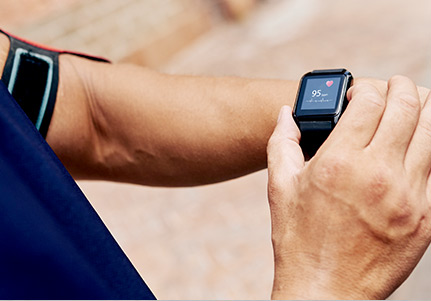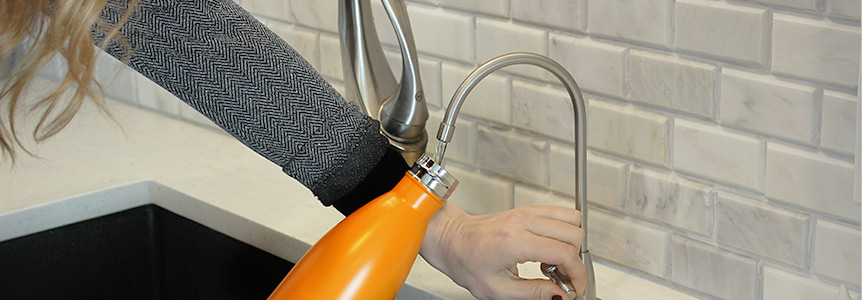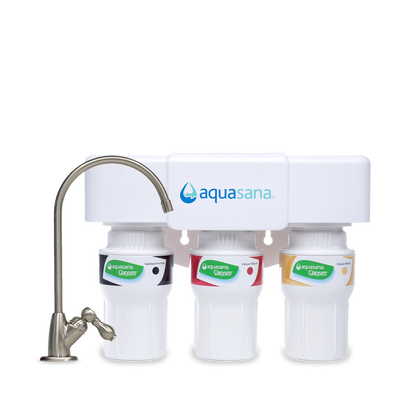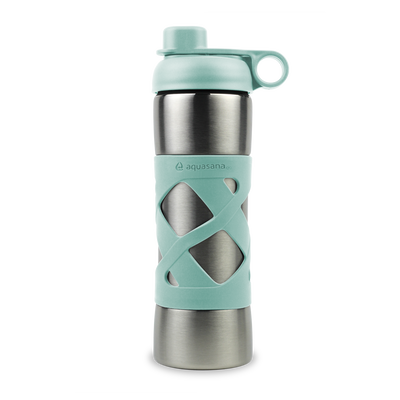Working out doesn’t always come easy. If it did, they wouldn’t call it working out. Even for exercise enthusiasts, the hardest part about working out is getting to the gym. That moment when you’re pulling your socks up over your ankles, slipping your feet into your shoes, is all just you playing a mental game of chicken. “I won’t stop if you don’t”.
Even if you can get yourself to the gym, dehydration can be a major obstacle. Whether you’re training for a marathon, prepping for a race, or just gearing up to do some strength training, dehydration can mean the difference between getting it done and calling it quits. So here’s how to stay hydrated, no matter how many beats per minute (BPM) you reach.
What Role Your Heart Rate Plays
When you exercise, you lose water in two ways: through breathing and through sweating. If you don’t hydrate properly, you can cramp up easily, get dizzy, and quickly tire out your muscles. And the faster you breathe, the more water you lose. That’s why keeping tabs on your target heart rate will help you stay properly hydrated — the faster your heart rate is, the faster you’ll breathe.
At rest, your BPM should fall between 60 and 100. And whether you do cardio or strength training, your target heart rate depends almost entirely on your age.
At rest, your BPM should fall between 60 and 100. And whether you do cardio or strength training, your target heart rate depends almost entirely on your age.
According to the American Heart Association, “target heart rate during moderate-intensity activities is about 50-70% of maximum heart rate, while during vigorous physical activity it’s about 70-85% of maximum.”
So here’s how they break it down. Between ages 20-30 years old, your target BPM should be between 100-170; 30-40 years old, it should be 90-162 BPM; 40-50 years old, it should be 90-153 BPM; and for someone 50-60 years old, it should be  between 80-145 BPM.
between 80-145 BPM.
After you get to know your heart rate a little better, your water intake therein is all about balance before, during and after your workout.
How Much to Drink, Before, During & After Your Workout
Hydrating before you work out is priority number one. Bicyclists, for example, might be training in extreme temperatures, so they’ll need to take extra precautions. 12-16 oz. of water before your workout is the recommended amount.
According to Bicycling magazine, for those bicycling in extreme weather, you might need to drink as many as four whole bottles per hour (based on a 150-pound cyclist).
For just about any workout regimen, here are some general rules of thumb:
- Drink 15-20 oz. of water, 1-2 hours before you exercise
- Drink 8-10 oz. 15 minutes before you start
- While you exercise, drink 8 oz every 15 minutes
After you finish your workout, according to Runners World, drink “between 16 and 24 ounces of sports drink for every pound of body weight you lost during exercise.”
Electrolytes: the Icing on the Cake
Drinking enough water to stay hydrated (especially if you’re training for a marathon) is so important. Without it, your fingers and toes can swell, you can experience fatigue and nausea, and your hardest-working organs will get the least blood flow, making you dizzy.
That’s why it’s important to bring some form of electrolytes with you while you run. This can be in the form of a dissolvable packet or a gel pack, as they will replenish your energy stores and provide a small, but effective carbohydrate boost to keep you on your toes.
The best way to get those electrolytes though? Water purified through Reverse Osmosis. A Reverse Osmosis system will reduce the contaminants in your water but will also add back in those healthy minerals and electrolytes, so you can stay replenished and upbeat, no matter the weather.

Adequate water means you are lighter, quicker, faster, stronger — in every way. And drinking clean, electrolyte-infused water from a Reverse Osmosis filter? Well, that’s icing on the cake.

